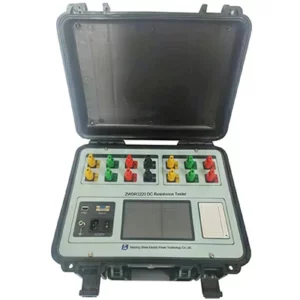The choice of electrode material can significantly impact the performance and accuracy of a transformer tester. Here’s how:
- Conductivity: Electrode materials with higher conductivity can improve the efficiency of electrical measurements performed by the transformer tester. High conductivity ensures better electrical contact with the test specimen, reducing resistance and minimizing errors in measurements.
- Corrosion Resistance: Transformer testing often involves exposure to various chemicals, oils, and environmental conditions. Choosing electrode materials with excellent corrosion resistance ensures the longevity and reliability of the tester, reducing the risk of electrode degradation over time.
- Stability: Electrode materials should maintain their physical and chemical properties under the operating conditions of the transformer tester. Materials that are stable over a wide range of temperatures and pressures ensure consistent performance and accurate measurements over time.
- Compatibility: The electrode material must be compatible with the substances being tested in transformers, such as insulating oils, dielectric fluids, transformer tester and solid insulation materials. Compatibility ensures that the electrode material does not react with the test specimen, which could alter the test results or introduce contaminants.
- Sensitivity: Some electrode materials may exhibit higher sensitivity to specific electrical properties of the test specimen, such as dielectric strength or insulation resistance. Choosing an electrode material with appropriate sensitivity for the desired measurements enhances the tester’s capability to detect and analyze transformer performance.
- Cost-effectiveness: The cost of electrode materials can vary significantly, and selecting materials that offer the best balance between performance and cost is essential. Cost-effective electrode materials should provide adequate functionality without compromising the accuracy or reliability of the transformer tester.
In summary, the choice of electrode material plays a crucial role in determining the accuracy, reliability, and overall performance of a transformer tester. By selecting materials with high conductivity, corrosion resistance, stability, compatibility, sensitivity, and cost-effectiveness, users can ensure optimal testing outcomes and prolong the lifespan of the testing equipment.
